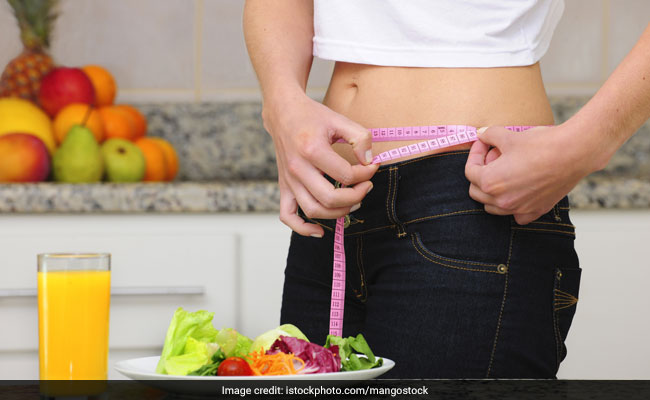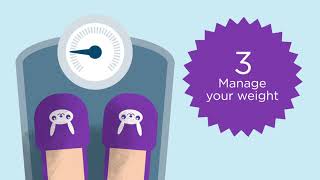
You can boost your immune system quickly by living a healthy lifestyle. This will improve your overall health, and help prevent many diseases. Multivitamins and multimineral supplementation are very popular, but they have little impact on the immune system. It is best to develop healthy habits. These include regular exercise, proper nutrition, and hand washing. These habits will help you fight infections and increase your immunity strength.
Consuming foods high in selenium is one of the best ways you can boost your immune system. This mineral can be found in tuna, broccoli, and fish. Consume more iron and zinc. These vitamins are crucial for the immune system. These vitamins can help you be more resilient to disease. You will feel happier. Drinking lots of water and getting enough sleep are two other ways to boost immunity.

The immune system is a complex organ that needs a good amount of nutrients to be effective. Although eating high-quality fiber and protein may boost the immune system, it is better to eat a balanced diet rich of vitamins, minerals and antioxidants. You can also try taking a daily multivitamin, which contains magnesium and other essential nutrients. Vitamin supplements are also beneficial to your health. It will take several weeks for the supplements to show any effects.
These foods can quickly boost your immune systems. A balanced diet is a great way to stay healthy and fight the flu. Don't skip meals. Try to eat at least five to seven portions of fruits and veggies each day. These foods are rich in essential vitamins and antioxidants that will boost your immune system. Other ways to boost your immune system include exercising and practicing meditation. You can find more information here on how to boost immunity naturally.
Many other foods can boost your immune systems. The immune system is aided by foods like green tea, strawberries, oranges, and antiviral substances. Your immune system will be primed by drinking tea. It will help prevent viruses and bacteria from causing you harm. You can improve your immunity by eating foods rich in antioxidants. Hand sanitizer can also be used to kill germs.

Vitamin C and zinc supplements can be found in a variety of foods that will boost your immune system. These supplements are available in the market, but it is best to get a variety of different foods to enhance your immune function. These food supplements should be taken on a daily basis. These food supplements should always be taken as directed. The CDC recommends 150 minutes of moderate-intensity exercise five times per week. This amount may be sufficient for women.
FAQ
Which workout is best for men?
The answer depends on what you are looking for. If you want to lose weight, cardio workouts are great because they burn calories faster than strength training exercises.
Strength training, on the other hand, is better if you are looking to increase muscle mass.
Both types are good for improving your overall health.
I recommend HIIT, or sprint interval training, if you want fast results. This type training will help you quickly lose fat by increasing your metabolism. This type of training also increases your endurance, allowing you to train even when you are tired.
How To Build Muscles Fast?
Fast muscle building is possible by eating healthy foods and regularly lifting weights.
It is best to exercise in the morning, when you feel fresh and ready to go!
Do push-ups, bench presses, squats, and other exercises.
You can try different weight training methods and remember to drink lots of water throughout the day.
What is a good seven-day workout routine?
A seven-day exercise program should consist of three days per week of cardiovascular training (running, biking, swimming), two strength exercises (using free weights, weight machines), and one flexibility/core workout (yoga, Pilates). It's essential to do each activity at least once a week. Each session should not take more than 45 mins.
Cardiovascular Exercises: Running, biking, swimming
The goal is to get in at least 60 minutes of cardio activities per week. Aim for 75 minutes per week to get the best results. Cardio exercise can stimulate blood flow and increase muscle growth.
Strength Training
Cardio exercises work on the heart and lungs. Strength training works on the muscles and bones. Strength training builds lean muscle mass, which helps burn calories even when resting.
Flexibility & Core Workouts
Flexibility and core workouts are great ways to strengthen your entire body. Yoga and Pilates are both excellent choices.
Cardio Exercise: Good or Bad for Your Health?
Cardiovascular exercise offers many benefits. It improves blood circulation, strengthens heart muscle, gives you energy, and can even help you lose weight.
Cardiovascular exercise includes running, biking, hiking, swimming, tennis, basketball, soccer, volleyball, football, etc.
It is important to keep in mind that cardio exercises should not only be performed at a high level of intensity, but also at low levels. Doing this could lead to injury.
You should only perform the cardiovascular exercise if you are feeling well.
It is important not to push yourself beyond your limits. In this way, you may injure or even kill yourself.
It is important to warm up before you begin any cardiovascular exercise. Then, gradually build up to higher intensity levels.
Remember, you should always listen to your body. If you feel pain during cardiovascular exercise, stop immediately.
After a cardio workout, it is a good idea to take a break. This will allow your muscles to rest.
Cardiovascular exercise is an important part of losing weight.
This is the best way to lose weight and belly fat.
Eggs are good for us.
All nutrients are contained in the egg. It helps to maintain strong bones and healthy hearts and lungs and stabilize blood pressure.
Eggs are an excellent source of protein, vitamins A, B12, D, E, K, calcium, phosphorus, iron, zinc, copper, magnesium, selenium, and riboflavin.
The egg yolk has high cholesterol. It does not contain any saturated fat. Eggs are low in saturated fat compared to other foods.
They are also low on calories and sodium. They are also very versatile because you can cook them any way you want. You can fry, poach, scramble, boil, hard-boil, and bake them.
They are very healthy and simple to make.
At least two whole eggs should be consumed each day. You should eat eggs if you are allergic to them.
Our bodies need eggs to provide the essential nutrients they require. Try adding them to your daily diet today.
What is a good daily gym routine?
Regular exercise is essential to staying fit. It doesn't matter which type of fitness you choose, as long as it is done regularly. Consistency is key. It is important to stay consistent in order to get results.
Start by doing small amounts of daily physical activity (like walking). Start by walking for a few minutes every day. Gradually increase your time exercising to 30 minutes per week. This could include running, cycling, swimming, weight training, yoga, or aerobics classes.
It is important to exercise every day of the week. You should not miss any sessions unless there is a good reason.
Make sure to wear appropriate clothing and footwear for outdoor exercise. Weather conditions can also affect your ability and safety to exercise.
While exercising, make sure to drink plenty water. Drinking alcohol during exercise can cause dehydration. Caffeinated beverages such as tea, coffee, and cola should be avoided. They can provide energy, but they also dehydrate.
At first, it's normal to feel tired after you finish your exercise routine. You'll feel more energetic and refreshed if you keep going with your exercise program.
Is Cardio Better Than Strength Training?
Both are equally effective. Cardio is better if you are looking to build muscle faster.
Cardio burns more calories per hour than strength training, and also burns more fat.
Strength training helps build muscle mass. But it takes longer than cardio to accomplish this goal.
Statistics
- An estimated calorie range for moderately active adult males falls between 2,200 to 2,800 calories per day, depending on age. (eatright.org)
- The PRS enabled risk stratification for overall prostate cancer and lethal disease with a four-fold difference between men in the highest and lowest quartiles (HR, 4.32; 95% confidence interval [CI], 3.16-5.89). (pubmed.ncbi.nlm.nih.gov)
- Cardmembers earn 5% Back at Amazon.com with a Prime Credit Card. (amazon.com)
- Get free shipping and 25% off today. (healthline.com)
- According to the American Academy of Dermatology (AAD), men over 50 are at a heightened risk of developing it. (healthline.com)
External Links
How To
What nutrients does a person need every day?
Men need healthy growth and development. The body requires vitamins, minerals, proteins, carbohydrates, fats, water, fiber, and other essential elements.
Also, the male body requires certain nutrients at specific times during the day. For example, when you sleep, your body uses energy from food to make hormones, antibodies, and enzymes. You use protein to build muscles and repair damaged tissue when you wake up.
At night, your body breaks down fat and stores the extra energy as glycogen. Your body has less energy but still requires enough nutrients during this time. You may have an occasional snack during the evening hours if you feel hungry.
Working out requires adequate carbohydrate and protein intake. If you train hard, you may experience muscle soreness after exercising.
To prevent this, you should eat carbs as well as protein within the first two hours after training. Your body will break down stored glycogen to provide glucose for energy.
After your workouts, you should eat protein immediately. This prevents muscle tissue being destroyed while you're sleeping.
Your body produces lactic acid during high levels of physical activity. It builds up in your bloodstream, which can lead to fatigue. Avoid this by eating foods rich in carbohydrates such as fruits or vegetables.
Carbohydrates are a good source of energy to help you recover from hard exercise.
Your diet may include lean meats like fish, eggs, milk cheese, yogurt or beans as well as lean proteins such as fish, eggs, egg yolks, cheese, yogurt, bean, peanuts and seeds.
All these foods are high-quality sources of protein. Protein helps to repair and grow muscles. Protein also supplies the amino acids your body requires to make sex hormones, such as testosterone.
You also need enough dietary fats to maintain good skin, hair, nails, and joints. Healthy men need between 20% - 35% of the total caloric intake to be fat.
Fat is good for your heart and helps you fight cancer. It also keeps your brain functioning properly.
You can get the majority of the fats that you need from vegetable oils such as soybean oil.
These oils contain high levels of monounsaturated fat acids (MUFAs). MUFAs lower cholesterol and decrease inflammation. They also protect your cells from damage caused by free radicals.
Saturated fats are found in animal products including meat, dairy products, butter and other dairy products. SFAs increase LDL ("bad") cholesterol, and increase triglycerides. They promote weight gain and abdominal fat.
Polyunsaturated oil (PUFAs), which are plant-based, can be found in vegetable oils, nuts seeds, grains, and other plant-based products. PUFAs improve cardiovascular function and decrease inflammation. They can also control blood sugar levels and cholesterol.
Erectile dysfunction can often be a problem for men who have low HDL ("good") levels of cholesterol. The consumption of saturated fats raises bad cholesterol which in turn lowers good cholesterol.
Men who eat lots of red meat or pork can develop prostate problems. This is because these foods contain high amounts of nitrates. When heated, nitrates are converted to nitrosamines. These compounds can lead to cancer.
Nitrites and other harmful chemicals are common in processed meats. Avoid them.
The American Heart Association recommends limiting red meat intake to two meals per week. Instead, opt for poultry, fish, legumes and tofu as well as whole grains bread and cereals.